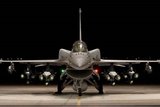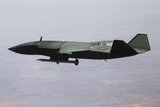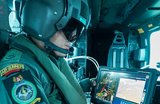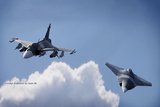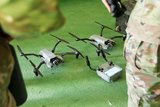CARMENTA looks into next-generation aircraft self-protection
Elettronica leads a 14-company team exploring new aircraft self-protection systems. (Photo: Elettronica/Emsopedia)
Elettronica is engaged in developing new aircraft self-protection systems (SPSs) under the EU-funded CARMENTA project, the Italian company confirmed on 23 July.
As project coordinator with an €8.1 million ($9.5 million) grant under the European Defence Industrial Development Programme (EDIDP), Elettronica heads a large team comprising Airbus Deutschland, Airbus Defence and Space, Airbus Helicopters España, BPTI, DA Group, Indra, Hensoldt Sensors, Indra, Leonardo, MBDA, Saab, Terma and Thales.
SPSs developed under the 30-month CARMENTA project will equip fixed-wing and rotary-wing aircraft to counter ‘a wide spectrum of current and evolving threats using different countermeasures’, Elettronica noted in a 23 July announcement.
‘Artificial intelligence and machine learning, alongside open architecture, will ease the integration of these self-protection systems on current and future platforms. These approaches will let equipment be easily updated as it moves through its service life.’
In a separate EDIDP-funded project, Elettronica is working with Leonardo on developing a new C-UAS solution for mini-UAVs and micro-UAVs, under the Joint European System for Countering Unmanned Aerial Systems programme.
More from Air Warfare
-
![Singapore Airshow 2026: CCA manufacturers eye growing opportunities in Asia-Pacific]()
Singapore Airshow 2026: CCA manufacturers eye growing opportunities in Asia-Pacific
Companies offering collaborative combat aircraft say there is a massive potential for countries adopting the capability in the Asia-Pacific region.
-
![Singapore Airshow 2026: Airbus-RSAF H225M teaming tests point to future scalability]()
Singapore Airshow 2026: Airbus-RSAF H225M teaming tests point to future scalability
The tests between a Republic of Singapore Air Force H225M and Airbus Flexrotor uncrewed aerial system were designed to allow the crew to receive and process real-time data from the UAS while maintaining direct command and control.
-
![Singapore Airshow 2026: Saab eyes “share” in future fighter market, targets 2027 CCA demo flight]()
Singapore Airshow 2026: Saab eyes “share” in future fighter market, targets 2027 CCA demo flight
The Swedish government is expected to make a decision on the next steps of the Future Fighter System Concept programme by 2030, with the current second phase focusing on technology knowledge expansion and demonstration flights.
-
![Singapore Airshow: Red Cat ramps up portfolio development amid “key” APAC opportunities]()
Singapore Airshow: Red Cat ramps up portfolio development amid “key” APAC opportunities
In the wake of its 1,842% year-on-year revenue increase in Q4 2025, Red Cat sees mass opportunities in the Asia-Pacific region as the company eyes an ongoing production increase and market growth.









